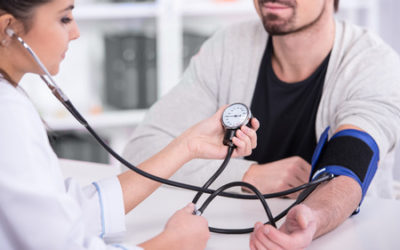While medications are taken for important reasons, like curing infections, improving symptoms, quality of life, or extending the length of our lives, any medication you take could have side effects. Though the medication may be helping with your health condition, a side effect is an unwanted reaction in addition to the benefits of the medication. A common medication side effect is diarrhea. Diarrhea is loose, runny, or watery stools that happen 3 or more times a day or significantly more than your usual number of bowel movements in a day.
Which medications cause diarrhea?
Certain medications are prone to causing diarrhea, like medications used to treat diabetes, infections (ex. Antibiotics), heartburn or acid reflux, mood disorders, cancer, high blood pressure, heart disease and/or high cholesterol (this is not an all-inclusive list). Sometimes your body gets used to the medication and the diarrhea is only temporary while your body adapts. Diarrhea may be associated with increasing the dose of medication. For example, metformin is the first-choice drug for type 2 diabetes, but a known side effect is diarrhea. Often diarrhea associated with metformin may occur when increasing the dose and can be improved by lowering the dose or changing to the extended-release version of the medication.
Read our blog about Metformin and diarrhea here.
What should you do if your medications are causing diarrhea?
Typically, it is easier to prevent diarrhea rather than treat it once it has already started. Prevention might depend on the time of medication you’re taking. With the metformin example from above, lowering the dose or asking your healthcare provider to switch to the extended-release version could help. For some other medications, like antibiotics, it is recommended to take them with food if stomach upset occurs. It would be prudent to also avoid any foods that you know trigger upset stomach while you’re taking medications that could cause diarrhea.
If you’re experiencing diarrhea from your medication, do not stop taking the medication without talking to your healthcare provider. Discuss with your healthcare provider if there is another medication option that does not cause diarrhea. If you need to continue taking the medication, there are a few things to try to reduce side effects:
· Your healthcare provider may order medication to treat and relieve the diarrhea
· Imodium AD (loperamide) is an over-the-counter medication to treat diarrhea, but you should discuss it with your healthcare provider before use to assure you don’t have an infection causing the diarrhea. If your diarrhea is infectious, it is not a good idea to take anti-diarrheal medication because your body is trying to get rid of the infection through the diarrhea and you likely need antibiotics to get rid of the infection.
· Drink plenty of water, between 8 to 10 glasses of fluids to avoid fluid loss. Your health care provider might even tell you to drink an electrolyte drink like Gatorade, Pedialyte, or Liquid I.V. for example.
· Avoid certain foods that could worsen the problem, like greasy, spicy, sweet, or high fiber foods
· Eat more bland, soft foods like bananas, rice, potatoes, toast, crackers, chicken, carrots
Diarrhea can lead to serious problems including severe fluid losses, dehydration, kidney injury, passing out, and/or lack of energy. Diarrhea also could be a sign of an infection. If you have any of these serious problems, call your healthcare provider right away. Always talk to your healthcare provider before discontinuing your medication. If any medication side effects ever become unbearable, talk with your healthcare provider about what to do.
Resources:
https://www.niddk.nih.gov/health-information/digestive-diseases/diarrhea/symptoms-causes












